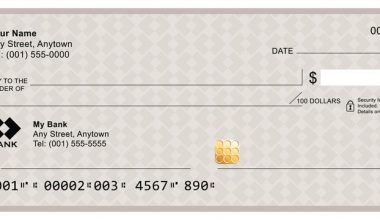In a land loan, lenders demand a downpayment as one of the requirements to get a house. The down payment serves as collateral, even when lenders will make it look like it’s not. In this guide, we’ll explain the best banks to get your loans from, what the most improved land loan is all about, and the land loan calculator. Get a look at this overview on land loans first!
An Overview of Land Loan
A land loan is a type of loan that one can use to pay for the acquisition of a piece of property. Taking out a land loan would be perfect for you if you intend to build a house or for any business purposes. What sort of mortgage is right for you depends on where you acquire land and what you want to do with it.
However, a land loan is occasionally misinterpreted as a construction loan, which is another kind of loan often utilized by people wishing to construct a building. A construction loan is typically required if you intend to purchase land and begin development as soon as possible.
Different Types Of Land Loans
Here are the types of land loans available.
#1. Raw Land Loan
Raw land is fully undeveloped land with no power, drainage, or roads. Undeveloped land is notoriously difficult to secure finance for. So having a well-thought-out development strategy is essential. This will demonstrate to land loan lenders that you’re devoted to the project and don’t pose much of a risk. You’ll have a better chance of getting approved if you put down a significant amount of money (usually 20% or more) and have excellent credit. The cost of raw land is lower than the cost of developed property. But the interest rates on raw land loans are greater, and the deposit is higher as well.
#2. Unimproved Land Loan
Unlike raw land, which is less developed, unimproved land has a more natural appearance. Occasionally, unimproved land contains some facilities and amenities but often tends to lack an electricity meter, telegraph pole, and pure gas meter. An unimproved land loan isn’t as dangerous as a raw land loan, but it’s still tough to get. So make absolutely sure you have a thorough plan, a significant deposit (at least 20%), and a good credit rating. Loans on unimproved land aren’t as risky as those on improved land, so the deposit and interest rates aren’t as high, but they are typically higher.
#3. Improved Land Loans
An improved land loan has access to items like roads, power, and water. An improved land loan is the most industrialized sort of land, so it may be more costly to acquire. Moreover, improved interest rates and deposits for an upgraded land loan are cheaper than others. It’s still vital to make a sizable down payment and have a strong credit score.
Getting a land loan, be it improved or raw, is similar to getting a home mortgage loan, but since there is no property security, it can be more difficult to assess the worth of the property. Hence, this implies that land loan lenders are on the riskier side when it comes to improved land loans. Because the deposit and the interest rate tend to be higher than those of a standard home mortgage.
How Land Loans Work
Since there are various forms of land loans, each has specific requirements that borrowers must follow. However, there are still fundamental principles that one must take into account when a borrower submits an application for a land loan to lenders.
As with any loan, an applicant will need to establish that they have a solid credit score (720 or better is normally fantastic). They will also need to clarify their proposed use of the land, which varies depending on what form of loan they’re interested in. There are some features of a property that borrowers should make sure the appraiser knows about, such as zoning, land-use limitations, surveyed boundaries, and ease of access to public services. These indicators will offer lenders a sense of how dangerous the loan might be.
The determination of the terms and conditions of a land loan might be when lenders take this aspect into account. Due to the greater risk involved, interest rates on land loans are often higher than those on mortgages. Borrowers may be eligible for reduced rates, though, if they have better credit and a lower debt-to-income ratio.
The borrower is in charge of providing a deposit and repaying the loan at the set interest rate after choosing the loan’s rates. The client has been authorized by a lender and has acknowledged the loan’s conditions. Refinancing a loan on land into a regular mortgage is also a possibility once the building of your new home is ready. A decrease in the interest rate and a fresh principle balance are two benefits of refinancing.
How To Get Land Loans
If you’d want to secure a land loan, it’s often easier to do so through lenders like a local bank or credit union situated near the property you’re trying to buy. Yet, relying on what you want to utilize the land for, there can be different loan choices accessible to borrowers.
For example, if you’re intending to build a primary home in a remote region, you can request USDA loans. The target of USDA loans and USDA construction loans is low-to-modest-income households. A borrower may be able to get a large loan with no money down if their financial circumstances allow it.
While SBA 504 loans can be used for commercial real estate purchases, SBA loans are made available by the U.S. Small Business Administration (SBA) and are intended for company owners searching for money to help defray the cost of buying land. SBA loans have variable interest rates and terms, but the repayment timeframe is typically 10 to 25 years.
Land Loans: Advantages and Drawbacks
Let’s go through some of these advantages and disadvantages to assist you in deciding and see how they might relate to your requirements and financial condition.
Advantages
There are several advantages to applying for a land loan if developing a house or a company is vital to you. Possessing the ability to construct the home of your dreams is, by far, the biggest advantage. It can also provide businesses with the chance to take advantage of developing areas. That is if they’re intending to use the land for commercial purposes. For those who are visionary, innovative, and patient, getting a land loan is an excellent way to start a business or build a house.
Drawbacks
Filing for a land loan necessitates an awareness of the potential pitfalls. Many lenders are reluctant to give land loans since they are riskier for them and because there is no house as collateral to hold the loan against the borrower’s default. As for finance, bigger down payments and higher interest rates are both possible outcomes. due to the fact that it is a new construction project. There is also a chance of running into unanticipated difficulties, such as failing to finish the house.
The Best Banks for Land Loans
The best banks that you should consider for land loans. Plus, bank land loans with a calculator Let’s go!
#1. WaFd Bank
WaFd Bank provides banking services in the following states: Arizona, Idaho, Nevada, New Mexico, Oregon, Texas, Utah, and Washington. You can acquire finance for renovated land up to $700,000 with no commitment to build straight away. Meanwhile, you can use WaFd bank’s online land loan calculator to determine the interest and tax rates you can expect to pay. Depending on your credit score, property characteristics, and expansion plans.
#2. Atlantic Union Bank
The Virginia-based Atlantic Union Bank provides loans for both residential lots and undeveloped land. The building of your luxury home might also be financed through different construction loans. There are no tools like a land loan calculator, rate standards, or deposit info on their site.
#3. Bank of Clear Mountain
The western part of Maryland and north and central West Virginia are served by Clear Mountain Bank. One of the best banks for land loans is available for the future construction of residential properties as well as for recreational use on unimproved land. Residential lots can be purchased with a financing of up to 90%. Details about loans can be found on the land loan application part of their website and in the calculator. or by calling them or visiting one of their physical branches.
#4. The Alpine Bank
Alpine Bank is one of the best banks that provide financial services for the Colorado region. Both lot and new construction loans are accessible with a total loan-to-value amount of 75 percent on upgraded property.
Their website does not provide easy access to information about loans and monthly payments. That said, you can query online, request extra information by e-mail or phone, or visit one of their branch offices.
#5. The Bank of California and Trust Company
The California-based bank California Bank and Trust offers both land and building loans in the state. The bank provides several credit alternatives and financing up to 60% of the lot purchase price. In order to save you time and expense with the land loan calculator, this bank offers a unique option: a single, dual-purpose loan that one may use to pay for both the business acquisition of property and the building of your new residence.
#6. Old National Bank
On the basis of the size of the property, there are two types of financing options available to you. Up to five acres are purchasable with a 20 percent down payment through the use of a lot loan. Old National Bank offers land loans for purchases ranging from 5 to 25 acres.
A 35 percent down payment is required for a property with a lot size greater than 5 acres. The repayment terms and interest rates for loans for both land and lots vary. There is no requirement to start building right away with a lot and land financing, which is available for both improved and unimproved land.
Banks in the states of Idaho, Washington, Oregon, and California are served by the financial products and services provided by Banner Bank, one of the land loans. As a way to provide potential customers with more choices, the bank offers loans for the purchase of land in both developed and unimproved states.
They offer to borrow up to 75 percent of the land purchase cost, and they offer to provide attractive interest rates and fees. In order to speed up the verification of credit scores and the acceptance of loans, all lending decisions are made in-house.
How To Choose Your Land Site
Less risky, cheaper, and simpler projects tend to be more appealing to lenders. You can be eligible for a land loan if you meet the following criteria:
#1. Surveying and Boundaries
A survey is essential to avoid any future legal issues and to provide a clear image of exactly what land will be yours. Before you purchase the land, you should do a survey to make sure you are aware of its limits. Note that before approving a land loan, the majority of lenders want a finished American Land Title Association (ALTA) boundary survey.
#2. Zoning and Restrictions
You’ll need to confirm that the zoning permits you to legally complete your project depending on the plans for your site. Make sure your land is zoned for residential use, for instance, if you’re buying land to build a house. Also familiarize yourself with any additional particular laws that may apply to your area, including what you may and may not do.
#3. Utilities
Verify the availability of utilities on the property, including paved roads, sewage, electricity, and water. While most land will probably have access to these things, if you’re missing any or buying raw land, make sure you have the money, the right licenses, and the space you need. You should also make sure you follow all state and municipal laws and health regulations.
#4. Wildlife and Environmental
Make sure you do your research to make sure you’re not intending to build on land that the U.S. Fish and Wildlife Service has designated as protected because it contains rare or endangered plants or animals. States frequently have longer lists of flora and animals that are protected.
#5. Future Changes
Are there any development projects underway close to your property, such as a new roadway, school, or shopping mall? In order to guarantee that your land continues to fit your needs, make sure to take these factors and studies into account when designing any new construction.
Is It Difficult To Get a Land Loan?
Since buying land is more complicated than buying a house, getting a land loan is more complex than getting a conventional mortgage. You must be extremely clear about the land you plan to buy and be ready to submit surveys and zoning information about the site on which you wish to construct as many banks and credit unions do not readily grant land loans.
How Do You Finance a Land Purchase?
There are numerous choices. One is a loan for land. However, you might also be eligible for home equity loans, local lenders, or seller financing. Prior to accepting a loan, it is wise to consider all of your options.
Conclusion
A land loan is a type of loan that one can use to pay for the acquisition of a piece of property. Taking out a land loan would be perfect for you if you intend to build a house or for any business purposes. The kind of mortgage that is right for you depends on where you acquire land and what you want to do with it. Plus, the use of a land loan calculator is very essential.
Land Loan FAQs
Which bank is best for land loan?
- The largest bank in India is the State Bank of India or SBI.
- India’s largest private bank, ICICI Bank, is based in Mumbai….
- In terms of commercial banks in India, HDFC Bank is up there with the best.
How much land loan can I get?
The majority of banks offer land loans of up to 75% of the property’s worth. You can get up to 90% of the property’s value, though, if the sum is less than Rs. 75 Lakhs.
What is the longest loan term for land?
Short-term, two to five-year land loans are common, relative to the conventional 15- to 30-year durations for a home mortgage. If you plan to build a house on the land, you may be able to get a longer lease.
{
“@context”: “https://schema.org”,
“@type”: “FAQPage”,
“mainEntity”: [
{
“@type”: “Question”,
“name”: “Which bank is best for land loan?”,
“acceptedAnswer”: {
“@type”: “Answer”,
“text”: “
- The largest bank in India is the State Bank of India or SBI.
- India’s largest private bank, ICICI Bank, is based in Mumbai….
- In terms of commercial banks in India, HDFC Bank is up there with the best.
“
}
}
, {
“@type”: “Question”,
“name”: “How much land loan can I get?”,
“acceptedAnswer”: {
“@type”: “Answer”,
“text”: “
The majority of banks offer land loans of up to 75% of the property’s worth. You can get up to 90% of the property’s value, though, if the sum is less than Rs. 75 Lakhs.
“
}
}
, {
“@type”: “Question”,
“name”: “What is the longest loan term for land?”,
“acceptedAnswer”: {
“@type”: “Answer”,
“text”: “
Short-term, two to five-year land loans are common, relative to the conventional 15- to 30-year durations for a home mortgage. If you plan to build a house on the land, you may be able to get a longer lease.
“
}
}
]
}






